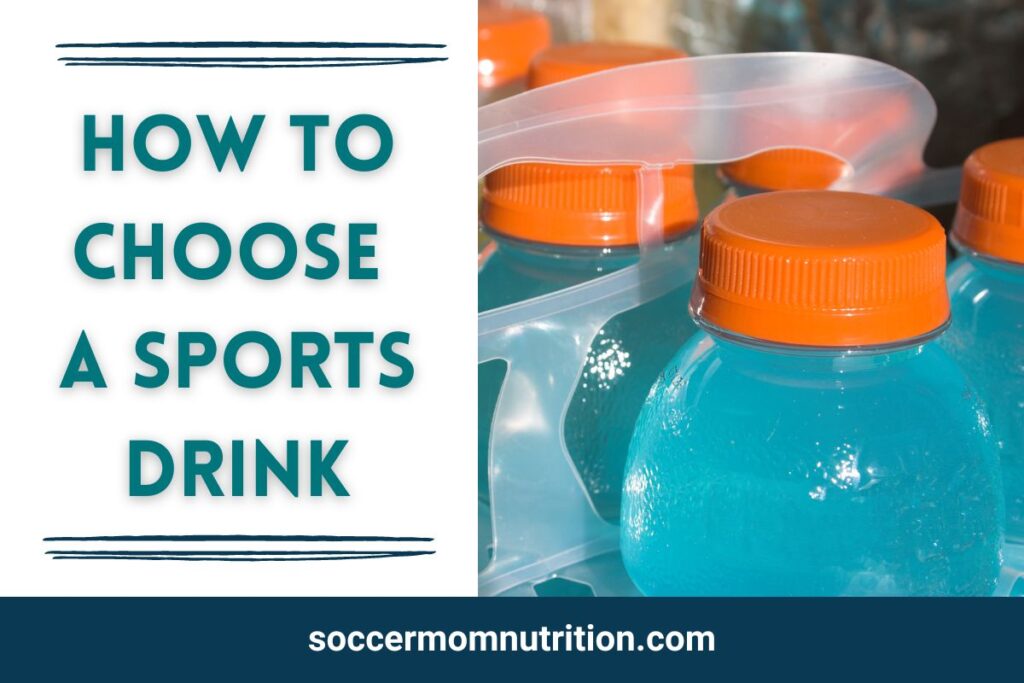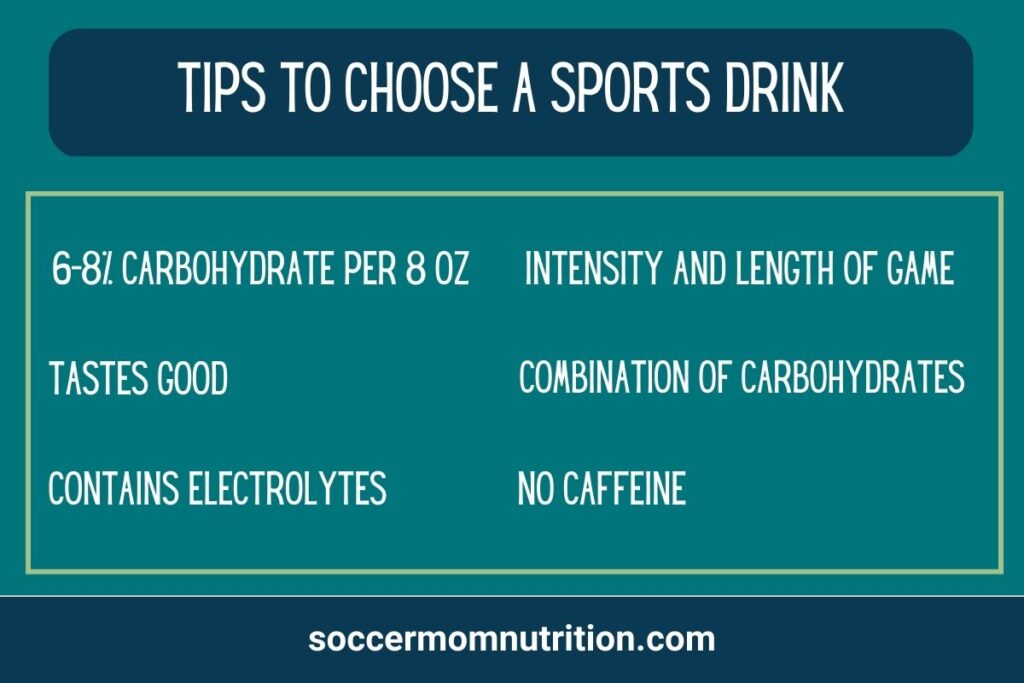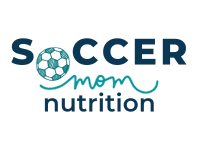How to Choose a Sports Drink to Boost Performance
When you’re gearing up for soccer games and practices, you’ll want to know how to choose a sports drink to best support your performance goals.
Soccer players need to maintain their energy levels during a game. So sports drinks that contain carbohydrates and electrolytes help. They are especially helpful when you’re playing soccer in the heat.
Additionally sports drinks support rehydration and post game recovery.
Read on to learn how to choose a sports drink.

Please note that this article contains affiliate links. If you click one of these links and make a purchase, we may earn a commission. As an Amazon Associate, we earn from qualifying purchases.
Tip for how to choose the best sports drink
Choosing the best sports drink for soccer depends on many things, including your individual needs and the specific demands of the game or training. Here are some general tips for choosing the best sports drink for soccer:
1. Look for drinks that have a 6-8% concentration of carbohydrates which is about 14- 16 grams of carbohydrate per 8 ounce serving. This amount has been shown to be easier to digest during higher intensity exercise. (1)
Gatorade meets this requirement as do some of the other sports drinks on the market.
While you need carbohydrates, you don’t want to have too much while you are playing because higher amounts of carbohydrates take longer to digest. Then you might have fluid sloshing in your stomach or an upset stomach.
2. Pick a sports drink that has a combination of carbohydrate types, such as sucrose, glucose and dextrose. These combinations absorb more quickly to give you that burst of energy and top off your energy stores.
Sports drinks containing one carbohydrate source, especially fructose or galactose, can cause stomach upset because they are not easily absorbed.
3. Choose a sports drink with electrolytes. The main electrolyte to focus on is sodium. A good choice is a sports drink with about 110 to 200 mg of sodium per 8 ounce serving.
Sodium replenishes the salt lost in sweat to maintain hydration, helps with carbohydrate absorption and also helps to improve the taste so you want to drink more.
4. Consider the intensity and duration of the game. If you’re playing a high-intensity game over 90 minutes, a sports drink that contains carbohydrates to help fuel your muscles.
Since most soccer games don’t have hydration or refueling breaks, sports drinks fill the gap. You can quickly take a few gulps during stoppage time and then use halftime to rehydrate and refuel your energy stores.
5. Avoid caffeine. Caffeine can be dehydrating and may negatively affect your performance especially in the heat and if it’s drunk during activity. Look for sports drinks and fluids without caffeine.
6. Choose what you like. Ultimately, the best sports drink for soccer is one that you enjoy drinking and that doesn’t upset your stomach. Experiment during practices and rest days with different brands and flavors to find one that works for you.

What 4 things should a sports drink contain
A good isotonic sports drink contains these four things: carbohydrates (glucose, fructose, sucrose or maltodextrins) and the electrolytes – sodium, potassium, chloride and magnesium. (2, 3)
Which types of sports drinks are most effective
The most effective sports drinks when playing or training are those that are called isotonic. This means that they contain similar concentrations of sodium and carbohydrates as the body. Therefore they are more readily absorbed by the body.
Additionally, studies show that an isotonic sport drink helps prevent muscle damage by maintaining fluid and electrolyte balance. (4)
Studies show that hypotonic drinks may be more effective in overall rehydration especially for exercise that doesn’t more than an hour. (5)
Final thoughts
Choosing the right sports drink will impact your ability to perform at your best. When trying different options, make sure you test during practice or rest days.
Start drinking water and sports drinks with carbohydrates early, even right before the game. Then continue drinking a sports drink every 15 minutes for a total of at least 60 ounces per hour during play.
Remember to also stay hydrated by drinking plenty of fluids before, during, and after the game.
What’s your favorite sports drink?
Join our mailing list and get our FREE Pre-Activity Fueling Guide.
Stephanie Magill, MS, RD, CD, FAND has over 22 years of experience in public health and nutrition. As a performance registered dietitian nutritionist, Stephanie specializes in sports nutrition and provides simple and actionable information so that athletes can be well fueled for high performance on and off the field. Stephanie has a Master’s Degree in Nutrition and is a Fellow of the Academy of Nutrition and Dietetics.

